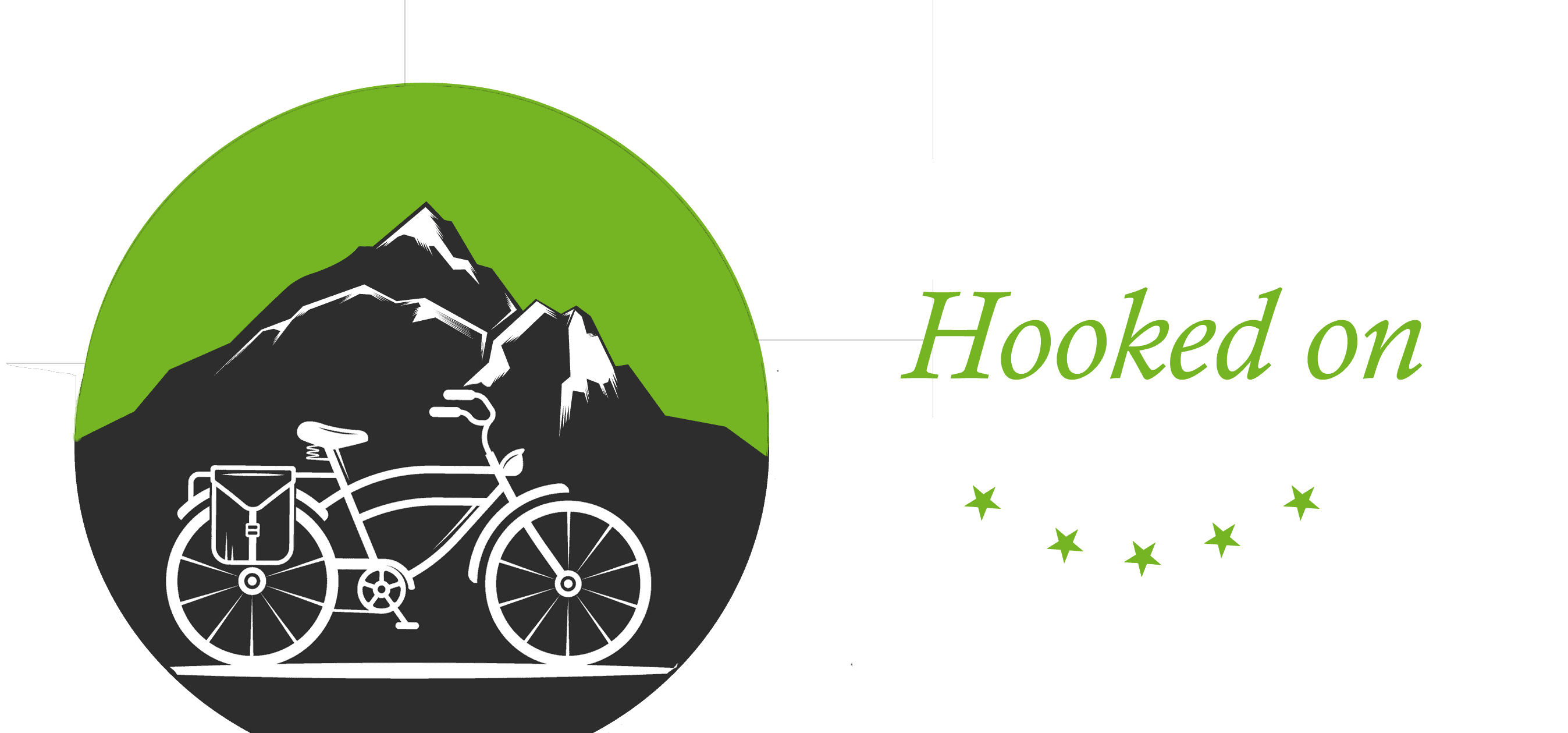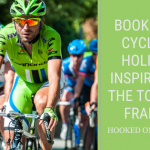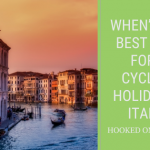The new year brings with it yet another 365 days full of exciting holiday opportunities. If you’re looking for a unique holiday that isn’t like anything you’ve done before, then a cycling holiday offers the perfect experience. A cycling tour is a great way to explore a new country (or even one you’ve visited before!) whilst staying active – either by yourself, with friends and family or whilst meeting new, like-minded people.
France boasts some of the best locations for cycling tours, with there being routes for everyone no matter age or ability. If a cycling tour in France sounds right up your street, then read on below as we offer you helpful tips, advice and guidance on what you can expect from this type of holiday and how you can effectively prepare for it.
Your Packing Checklist
Bike Gear
You can’t pack for a cycling holiday without the necessary biking gear. First and foremost, the most important piece of equipment you need is a bike – after all, it wouldn’t be a cycling holiday without one!
Many cycling tours will include rental bikes in the package price or will offer bike rental at an additional cost. It’s important to find out whether or not a bike will be included prior to the holiday, and if it isn’t then you’ll need to decide whether you will hire a bike when you get there or choose to take your own.
On top of sorting a bike, it’s essential that you also pack a helmet. This is especially important if you’ll be biking as a family, since it’s compulsory in France for children to wear a helmet up until the age of 12 – of course, it’s also sensible and highly recommended for everyone to wear a helmet for safety reasons, regardless of age.
We also recommend you pack a saddle bag. A saddle bag attaches to your bike and is great for longer journeys, conveniently storing any spare parts and essentials (e.g. snacks and water) whilst you’re riding without being in the way or requiring you to wear a backpack.
It’s also a good idea to pack a bike lock, so that you can securely leave your bike in a safe place during stop off points along your tour when you may want to go and explore local sites.
For more inspiration and helpful ideas on what you may wish to pack for your cycling holiday, check out our short guide on the seven must-have travel accessories for cyclists!
Clothing
Whilst cycling clothing is the best attire to wear for maximum comfort and efficient riding, cotton/polyester shorts and a t-shirt will be suitable if you don’t have this gear. For a week-long trip, we recommend having at least three separate cycling outfits packed, so that you have a rotation of clothing to wear, wash and dry (assuming you have access to washing facilities).
On top of this, you’ll want to pack casual clothing you can wear during your free time outside of the time spent cycling (e.g. for the evenings), along with pyjamas and swimwear if applicable.
Also consider what the weather will be like at the time of year that you’ll be going. Consider whether you’ll need leggings, thermal layers, waterproof jackets, cycling sunglasses etc.
Essential Items
Alongside your clothes and biking gear, there are other essential items that you won’t want to forget to pack. This includes all of the important travel documentation, including your passport, EHIC/GHIC card, proof of insurance and your travel itinerary.
Remember to also pack any important medication that you or your family may need, especially if any of you have food allergies and require an epipen. A first aid kit, bug repellent and sunscreen are also good items to take with you.
Don’t forget to pack your phone charger (and chargers for any other of your electronics) as well as a European adapter plug.
Personal Items
Lastly, think about personal items that you’ll likely want and need – both practical and preferable. For example, you’ll want to pack your washkit, then perhaps some light reading and your headphones for entertainment, as well as some earplugs and an eye mask for your flight.
We also recommend packing some energy bars and gels to pack in your saddle bag when cycling, along with reusable drinks bottles that you can fill up each day so you can stay energised and hydrated whilst cycling without having to keep paying for fresh bottles of water or energy drinks.
Bordeaux Cycling Holiday: What to Expect from Level 1-2 Difficulty
If you’re undertaking our French Atlantic Coast tour, which takes you from La Rochelle to Bordeaux, this is one of our tours with a level 1-2 difficulty rating. This makes it ideal for cyclists with little experience as well as for those with children looking for a family cycling holiday.
You can expect to cycle anywhere between 18-45 miles per day, with each day cycling on mostly flat terrain with a few minor hills and the potential for some short but steeper areas on some days.
This tour is available between April and October. In Bordeaux in the springtime, you can expect the weather to be relatively mild, with lows of 7-11°C and highs of 17-21°C, along with a good chance of experiencing some rain, then lows of 14°C and highs of 27°C in the summer months with less chance of rain, whilst October would see lows of 10°C and highs of 19°C and some chance of rain.
Normandy Cycling Holiday: What to Expect from Level 2-3 Difficulty
If our Normandy Discovery tour seems more up your street, this has a level 2-3 difficulty rating. These are better suited to those with a bit more experience who cycle regularly and/or upkeep a high level of fitness.
The daily distances that you may cover during this tour could be anywhere from 18-60 miles. Whilst some days may cover flat to hilly areas, you should expect others to definitely be in hilly regions where climbs cannot be avoided, and some of these may be long in places.
This tour is also available between April and October. Located in the North of France, the weather throughout the year isn’t too dissimilar to that which we experience in England. The spring months see lows of 6-9°C and highs of 12-15°C and some chances of rainfall, then the summer months see lows of 11-13°C and highs of 20°C and about a week of rainfall (each month), before the temperatures goes back down to lows of 11°C and highs of 16°C in October with roughly 10 days of rain.
Provence Cycling Holiday: What to Expect from Level 3-4 Difficulty
Ahh, Provence – one of the most renowned regions in France. Nestled in the south of the country, our Provence tour is one of the best ways to see the wonderful sights this beautiful region has to offer. Rated with a level 3-4 difficulty, this tour is best suited to experienced cyclists.
You should expect to partake in some strenuous biking in mountainous regions, with long and steep climbs, covering anywhere from 18-75 miles per day.
Thanks to the nicer weather throughout the year in the South of France, this tour is available from March to November. Between March and May you can expect lows of 4-11°C and highs of 16-24°C, between June and August lows of 15-17°C and highs of 29-30°C, then between September and November lows of 5-13°C and highs of 15-26°C (with the higher averages being expected in September and the lower averages more likely in November).
Book Your Next Cycling Holiday Today
If you’re looking for self-guided cycling holidays in France, then you’re at the right place here at Hooked on Cycling & Walking.
With a range of holidays available throughout the year for all abilities, you can be sure to find the perfect trip for you. Looking to travel slightly further afield than France? Worry not – we also offer cycling holidays in a range of destinations across Europe!
If you’d like to learn more about what you can expect from our cycling holidays or have any other enquiries, then head over to our FAQ page or get in touch with us today and we’ll be more than happy to help. Happy cycling!



